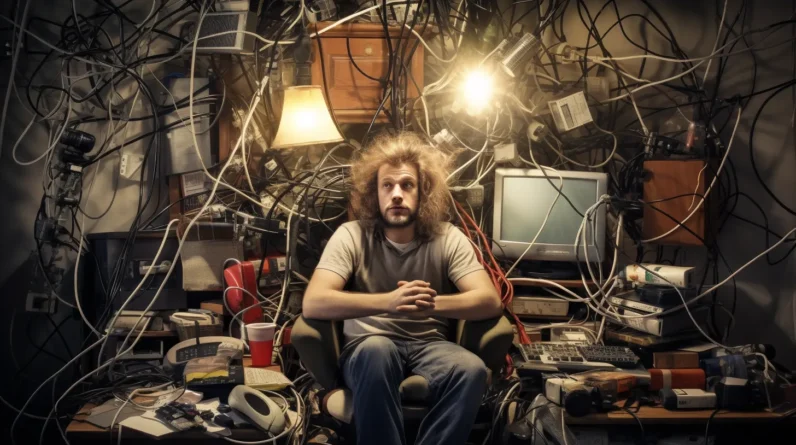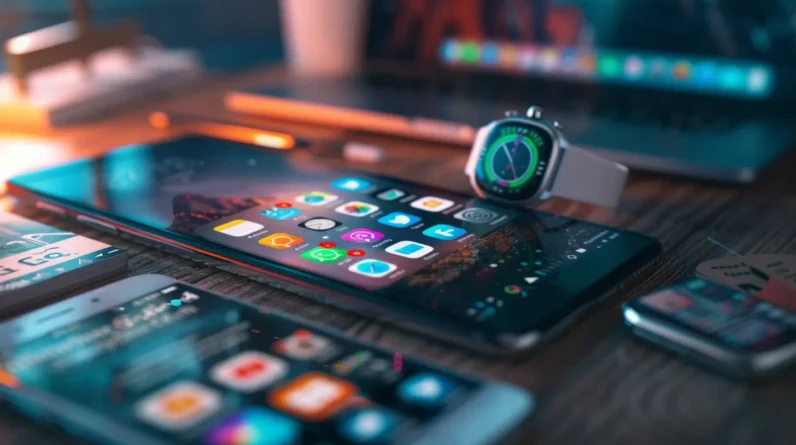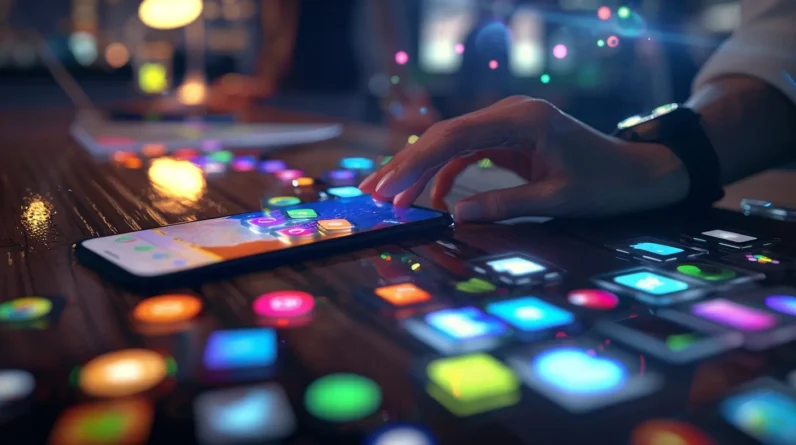
Today’s rapid pace of life often leaves us feeling trapped between difficult choices regarding the influence of smart devices on our daily routines.
On the one hand, the saying ‘work smarter, not harder’ suggests that these advanced gadgets should streamline our tasks and boost efficiency.
Yet, as we wade through the sea of apps, notifications, and ever-present connectivity, it raises the question: do smart devices genuinely simplify our existence or do they introduce more complexity into an already demanding life?
The answer isn’t clear-cut and deserves deeper consideration.
Rise of Smart Devices in Daily Life
Smart devices have woven themselves into the fabric of our daily routines, streamlining our activities and boosting our comfort and efficiency. However, this growing dependence on technology brings with it concerns over privacy and the effect it has on human connections.
Concerns over privacy stem from the considerable volume of personal data that smart devices gather and retain. Our movements, search habits, and even personal preferences are easily tracked and stored, prompting questions regarding the accessibility and usage of our personal details by others.
The proliferation of smart devices has also influenced the way we interact socially. While they facilitate communication through video calls and instant messaging, there’s a noticeable decline in direct, face-to-face engagements. It’s become common for individuals to be absorbed by their gadgets, sometimes overlooking the company and moments happening right before them.
Convenience of Smart Technology
As we embrace smart devices in our daily lives, it’s essential to recognize the ease they bring to our everyday tasks and routines. Smart technology has revolutionized our homes, enabling us to control various aspects of our living space with unprecedented simplicity.
Adjusting the thermostat, dimming the lights, or managing home security systems can now be done with minimal effort, thanks to these intelligent devices. Digital assistants such as Siri, Alexa, and Google Assistant have also become crucial for organizing our schedules, setting reminders, and providing answers to our questions.
With a simple voice command, we can retrieve information, operate our smart devices, and make our day-to-day activities more streamlined. The convenience offered by smart technology has certainly made our lives simpler and tasks more manageable.
Impact on Productivity and Efficiency
The use of smart devices in everyday life has greatly improved productivity and efficiency. With instant access to information and the capability to execute tasks quickly, we’re able to achieve more within shorter timeframes.
Smart devices have made processes more streamlined, helping us to maintain organization and concentrate on work-related tasks. The ability to work remotely and collaborate with peers from different locations, thanks to smart devices, has enhanced flexibility and productivity.
Nevertheless, it’s essential to acknowledge that the rise in distractions linked to smart devices can adversely affect productivity. Notifications, social media, and various applications can easily distract us and impede our focus on current tasks.
It’s vital to find a balance and utilize smart devices as aids for productivity instead of allowing them to become sources of distraction.
Potential Drawbacks and Challenges
One challenge of bringing smart devices into everyday life is the constant lure of prioritizing notifications and social media above essential tasks. The non-stop flow of alerts and the addictive pull of social media platforms make it hard to maintain focus and stay on task. This often leads to a habit of repeatedly checking our devices for the latest updates, which can decrease productivity and heighten distractions.
Concerns about privacy also surface as these gadgets gather extensive personal data, leading to questions about the security and use of this information. Our reliance on these devices also makes us susceptible to security breaches and cyber threats.
It’s essential to find equilibrium and set healthy limits with our smart devices to counteract these potential issues.
Finding the Balance in Smart Device Usage
To maintain a healthy balance in our usage of smart devices, it’s important to set clear boundaries and prioritize essential tasks over the lure of constant notifications and the pull of social media. The issue of technology dependency is significant in modern society, as we often find ourselves incessantly tethered to our devices, struggling to disconnect.
It’s vital to establish limits on our device usage and designate specific tech-free zones or periods during the day. Privacy concerns are also critical. With smart devices collecting extensive personal data, being vigilant about privacy settings and the permissions awarded to apps and services is necessary.
Conducting regular reviews and tweaks to these settings can aid in protecting our personal information and fostering a healthier engagement with our smart devices.
Conclusion
Smart devices have certainly made aspects of our lives both easier and more complicated. They provide convenience and efficiency but also come with potential drawbacks and challenges. Striking the right balance is crucial. A recent study revealed that the average person now owns and uses at least three smart devices daily, underscoring how deeply technology is woven into our daily routines.
To navigate this digital landscape thoughtfully, we must prioritize our well-being amidst the expanding presence of smart technology.







